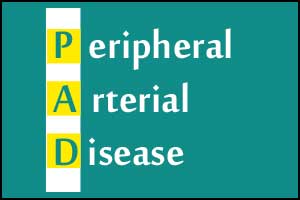- Home
- Editorial
- News
- Practice Guidelines
- Anesthesiology Guidelines
- Cancer Guidelines
- Cardiac Sciences Guidelines
- Critical Care Guidelines
- Dentistry Guidelines
- Dermatology Guidelines
- Diabetes and Endo Guidelines
- Diagnostics Guidelines
- ENT Guidelines
- Featured Practice Guidelines
- Gastroenterology Guidelines
- Geriatrics Guidelines
- Medicine Guidelines
- Nephrology Guidelines
- Neurosciences Guidelines
- Obs and Gynae Guidelines
- Ophthalmology Guidelines
- Orthopaedics Guidelines
- Paediatrics Guidelines
- Psychiatry Guidelines
- Pulmonology Guidelines
- Radiology Guidelines
- Surgery Guidelines
- Urology Guidelines
Adherence to statins essential for better prognosis in PAD patients: ESC 2019 Update

Statin administration in patients with the peripheral arterial disease (PAD) even if given late after diagnosis, reduces mortality, according to a study presented at ESC (European Society of Cardiology) Congress 2019 held together with the World Congress of Cardiology in Paris, France.
The study demonstrates that patients who stopped taking the drug were at similar risk than those who never took it. It implies the importance of starting the drug and adhering to it for lifelong, preferably at a high dose.
Peripheral arterial disease is a condition characterized by clogging of arteries in the legs. The condition, that affects around 200 million people worldwide, restricts blood flow to the legs resulting in leg pain and cramping during walking -- referred to as intermittent claudication. Some patients also develop gangrene in the feet due to poor circulation. PAD increases the chances of heart attack and stroke.
Statins are the recommended drugs for PAD patients. When taken together with lifestyle modifications including weight loss, healthy diet, smoking cessation and exercise they reduce the risk of heart attack and stroke by causing a reduction in low-density lipoprotein (LDL) cholesterol responsible for blocked arteries (atherosclerosis). But statin adherence is low, only few people take the medication course as directed.
Jörn Dopheide of Bern University Hospital, Switzerland, and colleagues examined whether adherence to statin therapy influenced survival in patients with symptomatic PAD.
The study enrolled 691 patients admitted to hospital between 2010 and 2017 and followed-up for a median of 50 months. At the beginning of the study, 73% of patients were on statins, increasing to 81% at the 50-month follow-up. The dose of the drug also increased between the two time periods, which was paralleled by a significant drop in LDL cholesterol from 97 to 82 mg/dL.
Also Read: Adding Ezetimibe to statins reduces the risk of heart attacks and strokes
Key findings include:
- Patients who stopped taking a statin had a similar mortality rate (33%) to those who never took the drug (34%).
- Adhering to statins throughout the 50 months was linked with a 20% rate of death.
- Taking high-dose statins throughout the study was linked with the lowest mortality rate (10%), while reducing the dosage during the study was related to the highest death rate (43%).
Also Read: Discontinuation of statins after 75 tied to increased CVD and hospitalization risk
“The study shows that adherence to statins is essential for the best prognosis. We also show that it is never too late to start medication and benefit from it. On top of that, it is crucial not to reduce the dose because LDL cholesterol levels rise again, thus increasing the overall risk on top of the residual risk for further events," said Dr. Dopheide.
He concluded: “All PAD patients should take statins, preferably very potent statins, like rosuvastatin 40 mg or atorvastatin 80 mg, or at the highest tolerable dose. In the rare case of statin intolerance, which was around 2% in our study, alternative lipid-lowering therapies must be considered.”

Disclaimer: This site is primarily intended for healthcare professionals. Any content/information on this website does not replace the advice of medical and/or health professionals and should not be construed as medical/diagnostic advice/endorsement or prescription. Use of this site is subject to our terms of use, privacy policy, advertisement policy. © 2020 Minerva Medical Treatment Pvt Ltd